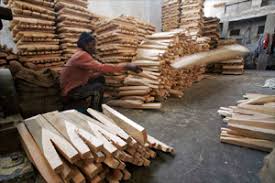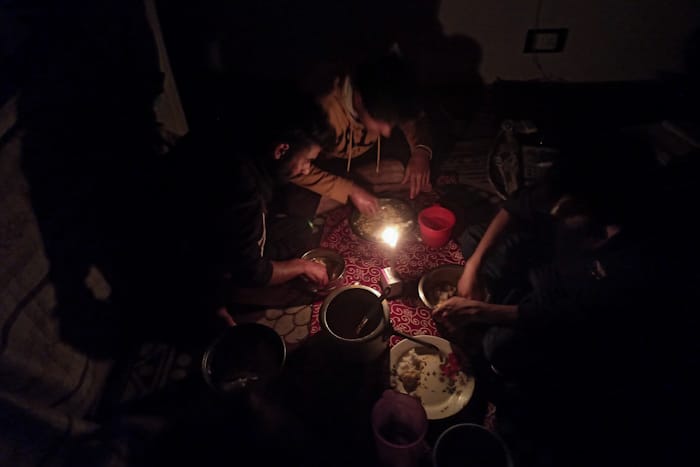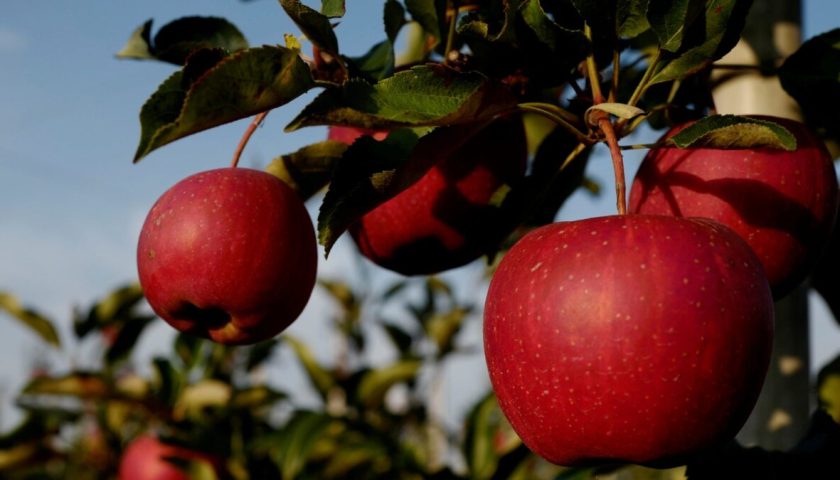Like in the Kashmir Valley, Sopore town and Pampore town are famous for the production of apples and saffron respectively. Similarly, in Anantnag district of south Kashmir, village identified as Halmulla Sangam, recognizes its identity for manufacturing cricket bats.
The vital part of the Halmulla Sangam is that this entire village consisting of around 100 families is associated with cricket bat making business. Most of the families are those who have been associated with the cricket bat making industry for the last 40 years.
People associated with this business said that Kashmiri bay-wood is used to make the bats and ready bats are exported in different parts of the country (in large numbers) in various Indian cities.
Zubair Ahmed, owner of Shahin Sports, in Hamula said that he has been associated with this business for the last 40 years. He had inherited this business through his grandfather Ghulam Ahmad.
“The whole village, which comprises around 100 families, is associated with this business. Nearby people to the village are also associated with this business, but in our village all people are connected to this business. Each house has its own factory, most of the families are associated with the past 40 years, said Zubair.”
Zubair said that our factory consists of 6 craftsmen. The factory and its affiliate showroom are our own property.
“We are very satisfied with our business. We use localized wood to make cricket bats. However, handles are imported from overseas, we send ready-made bats to our dealers in Mumbai, said Zubair.”
However, Zubair, owner of Shahin Sports, said that the use of Kashmir-based bats has not yet been used at any internationally-played cricket competition. The use of Kashmir-based bats is mostly used for domestic cricket.
“The rate of these cricket bats is between 150 to 1000 rupees. The tourists also buy bats from us and we discount them in the prices, Zubair added.”
According to a report, willow trees in Kashmir were planted by British after the Second World War. Kashmir is the second largest exporter of cricket bats after the United Kingdom.
In addition to Halmullah in South Kashmir, people are also involved in cricket making business in Mirzapura, Charsu, Bijbehara, sathaar and many other villages.
Non-Kashmiri craftsman Pashash, who works in the Shaheen Sports Bat mechanism, says that he earns 500 to 700 rupees a day.
“I learned this work in five years. If I work throughout the day, I will earn 500 to 700 rupees.”
Pashash said that the art of crafting willow into bats is very interesting and a difficult task as well .
“After cutting, willow trees are sawed into small clefts and let to dry in sunshine and open air for 3-4 months. The bats are rubbed against a roll of swift moving sand paper for finishing their surface properly. Before putting on a rubber grip, handles are covered with thread for better and firm grasp, said pashash while describing his work.”
Pashash said that the Colourful stickers reading different brand names are pasted on bats to make them appealing to the customers. Fully refined kashmiri willow bats are set on display, to be sold in local markets.
Hamulla: The Bat manufacturing village of Kashmir






